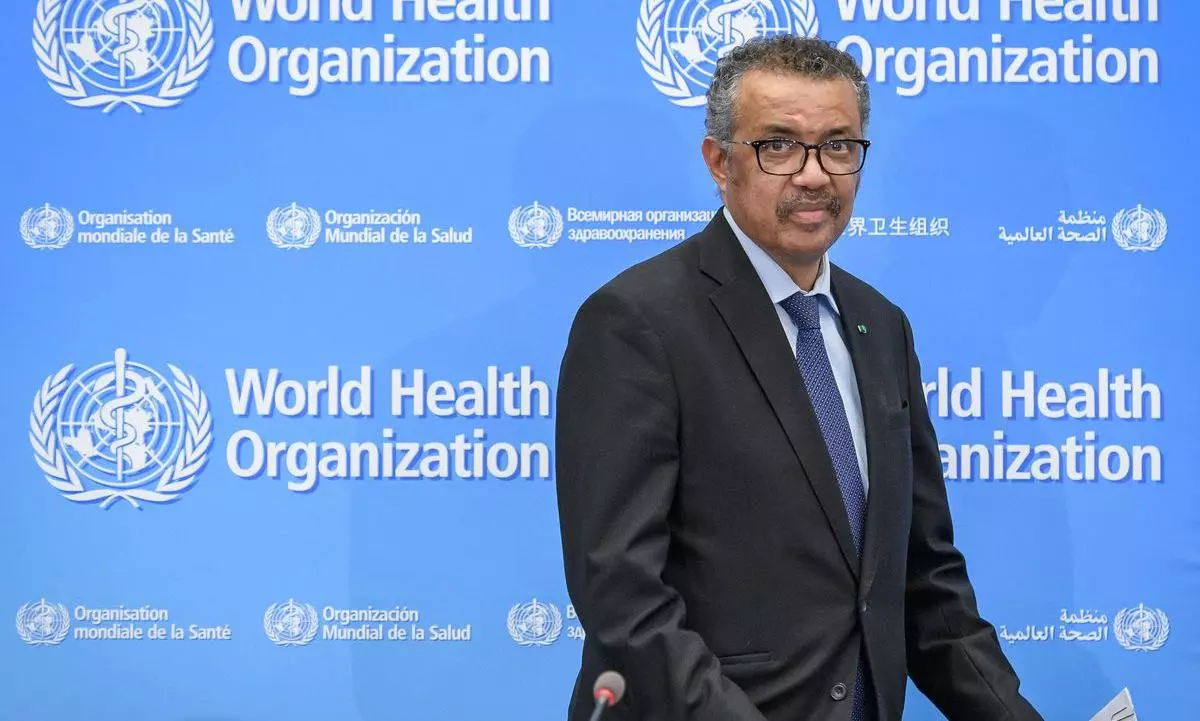
COVID-19: Herd immunity solution to the virus, WHO calls it 'Unethical'
text_fieldsGeneva: Head of World Health Organization Tedros Adhanom Ghebreyesus warns against herd immunity solution, calling the strategy 'scientifically and ethically problematic' on Twitter.
'Herd immunity', or 'population immunity', is a concept used for vaccination, in which a population can be protected from a certain virus if a threshold of vaccination is reached. It is used to define the indirect protections afforded to a population in which the majority of individuals are resistant to an infection, either inherent or acquired. This is possible either by being infected or vaccinated by a significant proportion of the population.
At a press conference on Monday, WHO Director-General Tedros Adhanom Ghebreyesus said that health officials usually seek to achieve herd immunity, where the entire population is protected by vaccination from a virus while most are immune."Herd immunity is achieved by protecting people from a virus, not by exposing them to it," he said. "Never in the history of public health has herd immunity been used as a strategy for responding to an outbreak," he said, calling the strategy "scientifically and ethically problematic."
Attempts to reach herd immunity naturally would be dangerous and fraught with scores of deaths, while vaccination is a safer and more effective path, Maria van Kerkhove, the COVID-19 technical lead at the World Health Organization (WHO), remarked on Thursday.
Herd immunity aims indirect protection provided to a population in which most people have naturally acquired immunity to infection. Once prevalent diseases such as polio, measles mumps and chickenpox have been made very rare by vaccination today because the few unvaccinated individuals that get infected will not transmit it to the vaccinated population, which prevents the transmission of the disease.
The percentage of a population who need be to be vaccinated to reach herd immunity is calculated using the basic reproductive rate (R0).
With cases of Covid-19 exceeding 37.9 million worldwide, the appeal of herd immunity becomes more compelling as an end to the pandemic. Nevertheless, some nations, including India, have recently affirmed re-infection using genome sequencing to indicate that the second infection was caused by the genetically distinct Sars-CoV-2 virus, which, according to "a nice big epidemic," has been created-In the words of UK pandemic adviser Graham Medley, not only facetious but very stupid, to end the public health emergency.
Tedros also noted countries had reported record-high daily figures of Covid-19 to the U.N. health agency for the last four days, citing surges in Europe and America in particular."There are no shortcuts and no silver bullets," the WHO chief said. "The answer is a comprehensive approach – using every tool in the toolbox."
To tackle the coronavirus pandemic, over 100 vaccines are being developed around the world. According to Johns Hopkins University, the global coronavirus count has surpassed 3.77 crore and the toll rose to 10,78,868. The recovery figure is over 2.61 crore.























